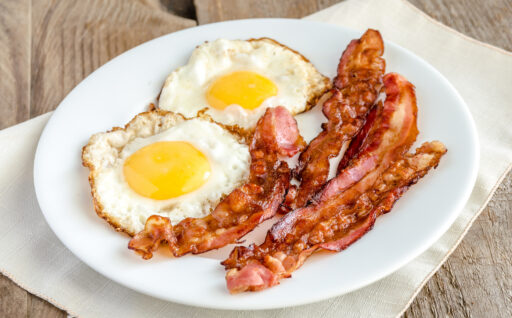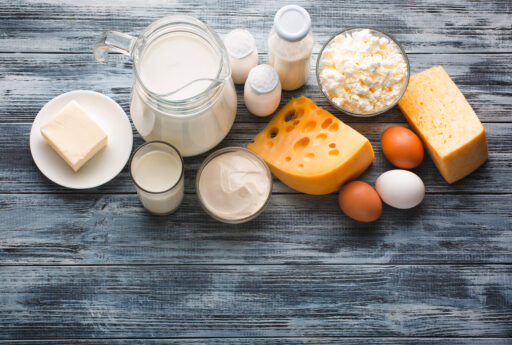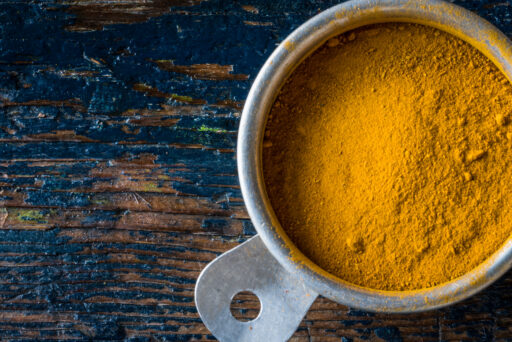According to a 2022 study published in Clinics in Dermatology, the elimination of animal products and the introduction of plant foods and vitamin B12 supplements may have a protective role in skin diseases. And, according to a 2020 literature review published in the Journal of Clinical Aesthetic Dermatology, a whole-foods, plant-based diet (WFPB) – which additionally minimizes or eliminates processed oils, sugars and white flour – helps prevent and even reverse skin aging. So, do vegans have better skin? According to research, there are eight properties of a whole-foods plant-based vegan diet that help your skin glow. Let’s find out what they are.
- 1. Greater intake of antioxidants
- 2. Increased intake of polyunsaturated fatty acids and monounsaturated fatty acids
- 3. Increased fiber intake
- 4. Increase probiotics and prebiotics
- 5. Increased soy consumption
- 6. Reduced saturated fat
- 7. Eliminating pro-inflammatory IGF-1 and whey
- 8. Reduced calorie intake
- What else can improve your skin, besides a vegan diet?
- Do vegans have better skin? Generally, yes, and here’s why
1. Greater intake of antioxidants

According to a 2022 narrative review published in the Journal of the Academy of Nutrition and Dietetics, plant foods are rich in antioxidants. Antioxidants fight inflammation, reduce gerontoxins that accelerate aging and neutralize free radicals. There are hundreds, probably thousands, of different substances that can act as antioxidants, such as vitamin E, vitamin A, vitamin C, vitamin E, beta-carotene, chlorophyll, polyphenols, flavonoids, and phytoestrogens.
Plant foods contain on average 64 times more antioxidants than animal products. Green vegetables are the highest antioxidant vegetables, while berries are the highest antioxidant fruit. Antioxidants give fruits and vegetables their color, so the darker the color, the more the antioxidants. Regularly consuming antioxidant-rich foods prevents oxidized fats from circulating in the blood and damaging small blood vessels.
Antioxidants fight signs of aging

Poor diets shorten telomere length, contributing to premature aging. In contrast, WFPB vegan diets have been shown to lengthen telomeres and reverse the aging process of DNA and increase the amount of antioxidants. This translates into healthier, more youthful skin. The diet also decreases systemic inflammatory processes, helping to reverse the age of blood vessels.
Free radicals from other internal and external sources are constantly harming our skin by destroying lipids and collagen and causing oxidative stress. While essential for some cellular functions, excess free radicals contribute to skin damage and accelerate aging.
We accelerate the intrinsic factors that cause skin aging through unhealthful diets that increase oxidative damage to our cells. Oxidative stress accelerates skin aging because it speeds up wrinkle formation, loss of elasticity, dryness, uneven pigmentation and discoloration, susceptibility to irritation and slower wound healing.
The antioxidant chlorophyll has been shown to result in reduced skin wrinkles, increased skin firmness, and improvements in skin smoothness. Polyphenols (commonly found in tea, coffee, red wine, vegetables, cereals, chocolate, dry legumes and fruit juices) have been shown to protect against UV-induced skin damage, oxidative stress, and DNA damage. This leads to improved skin wrinkles and elasticity.
Antioxidants fight acne
Eating fruits and vegetables protects and alleviates acne due to their anti-inflammatory and antioxidant effects. A plant-based diet rich in polyphenols (a type of antioxidant) has been shown to reduce acne, potentially due to modulating microbiota, inflammation, insulin resistance, and hormonal activity.
Increased intake of fruits and vegetables from vegan diets means more antioxidants, polyphenols, vitamins and minerals. Several studies have shown the diets rich in antioxidants, found in leafy greens, fruits, tomatoes, carrots and many other vegetables, may help diminish skin lesions. Fruits and vegetables offer protection with their anti-inflammatory and antioxidant effects. Antioxidants also help reduce oxidative stress, which promotes psoriasis. Additionally, foods rich in polyphenols, like tea, coffee, herbs and spices may help.
2. Increased intake of polyunsaturated fatty acids and monounsaturated fatty acids

Fatty Acids and Aging
Polyunsaturated fatty acids (PUFAs) and monounsaturated fatty acids (MUFAs) have been shown to reduce skin inflammation. Studies have shown PUFAs to improve UVB-induced damage, reduced skin dryness and atrophy. MUFAs reduce oxidative stress, insulin resistance and related inflammation. For instance, olive oil, which is high in MUFAs, has been shown to help prevent severe skin aging.
Fatty Acids and Psoriasis
Vegan diets facilitate increased consumption of polyunsaturated fatty acids, which have an anti-inflammatory effect. Some studies have shown little to no improvement in the use of fish oil to treat psoriasis, while others have shown slight to statistically significant improvement.
Vegan sources of omega-3s include algae oil, chia seeds, flax seeds, and walnuts, without the concerns about mercury and toxins. Furthermore, it is not necessarily the fish oil itself but the polyunsaturated fatty acids found in fish oils that appear to be a treatment option for psoriasis. Consuming olive oil, a rich source of polyunsaturated fatty acids, has also been reported to positively impact psoriasis.
Reduced inflammation improves eczema
Unfortunately, the first result that comes up when you search “veganism and eczema,” is a misleading statement devoid of context. Google pulls up a statement from a healthline.com article saying, “Interesting results from a U.S.-based national study involving over 9,000 children found that those on a vegan diet were more than 2.5 times as likely to have eczema as those who weren’t on a vegan diet.”
This first search result fails to highlight the fact that even the study itself says it’s unclear whether this means that a plant-based diet causes eczema, or whether parents of children with eczema are more likely to try a plant-based diet to reduce symptoms. As we will see, further research suggests that it’s the latter. Why would a plant-based diet, shown to reduce inflammatory diseases like eczema and asthma, cause an inflammatory disease?
Additionally, vegan diets are often rich in prebiotic ingredients (oligosaccharides, dietary fiber, and inulin), improving the gut microbiome. Prebiotics appear to reduce the severity and frequency of eczema. Ensuring sufficient intake of omega-3 fatty acids from sources like walnuts, flaxseeds, and green algae (such as Spirulina) may also be beneficial in reducing eczema.
3. Increased fiber intake

Increased fiber intake has been shown to stabilize blood sugar, reducing inflammatory skin diseases. Acne frequently occurs with syndromes associated with insulin resistance, so there is a strong association between insulin and acne. Many plant-based foods (likely the polyphenols in them) can improve this by reducing overproduction of insulin and stabilizing blood sugar.
According to a 2017 review published in the International Journal of Molecular Sciences, diets with a low-glycemic load – meaning rich in plant fibers and low in processed foods – have been associated with an improvement in acne. It balances carbohydrates with fiber, which slows digestion and the release of sugar into the bloodstream. This may be a result of controlling insulin levels or modulating the gut.
Specific foods shown to have a positive impact on insulin sensitivity in some studies include berry extract, olive leaf, berries, grapes, red wine, cinnamon and green tea. As turmeric has been shown to be antimicrobial, anti inflammatory and antidiabetic, these qualities would likely improve acne through stabilizing blood sugar. Plants from the genus Vitex have been successfully used to treat hormonal acne, such as chasteberry fruit, hops, red clover, ginseng and licorice root.
A diet rich in fat and low in fiber impacts the gut microbiome and promotes an inflammatory response. Polyunsaturated fatty acids and omega-3s have an anti-inflammatory effect. Some studies indicate that levels of these fatty acids are related to psoriasis severity. In contrast, omega-6s may have a proinflammatory role. Plant-based diets typically keep an appropriate ratio of omega-6s to omega-3s and avoids most harmful saturated fats.
4. Increase probiotics and prebiotics

The bacteria in our gut regulate our immune system, break down food, provide us with essential nutrition (biotin and vitamin K), and prevent the growth of harmful bacteria. Probiotics have been shown to improve acne, as they reduce inflammation, and reduce side effects from taking antibiotics. This may be due to reduced oxidative stress and reduced inflammation. Plant foods also provide prebiotic polysaccharides. Studies have found that prebiotics with polysaccharides, found in fiber-rich foods, may promote a healthy gut and in turn improve psoriasis. Plants are the only foods that contain fiber.
5. Increased soy consumption

Soy products help reduce acne incidence. This is because the isoflavones and phytoestrogens in soy fight sebum production. Replacing dairy with soy may also help improve acne indirectly by reducing visceral fat, which can otherwise contribute to acne. Diets high in plants in general – especially those rich in fiber and polyphenols – and low in simple carbohydrates provide a natural intervention and should significantly improve acne. Soy may also help fight psoriasis.
6. Reduced saturated fat

Many common skin conditions, such as accelerated skin aging, stem from inflammatory processes. Skin ages from both the intrinsic process and extrinsic factors, like exposure to UV rays, smoking, pollution, sleep disturbance and poor nutrition. This results in fine wrinkles, loss of elasticity, dryness and sallowness. Beyond the cosmetic impact, the aging process negatively impacts lipid and sweat production, immune function, and vitamin D synthesis, among other consequences. This results in impaired wound healing, skin atrophy, and vulnerability to external stimuli.
Inflammation contributes to acne
A whole-foods plant-based vegan diet can improve acne for several reasons. While uncontrollable factors like genes, hormones and environmental factors influence acne, an inflammatory diet also plays a role. Acne is partly the result of excess sebum production, caused by increased insulin-like growth factor (IGF-1) and increased activity of androgenic hormones. It is also caused by inflammation, high levels of a certain bacteria and hyperkeratinization of certain follicles.
WFPB diets reduce gerontotoxins, which fights inflammation
Gerontotoxins contribute to systematic inflammation, causing our cells to age. Their buildup can result in skin ulcers, delayed skin healing, and lower skin tensile strength. Diets containing meat and processed foods have been shown to contain the most gerontotoxins, while WFPB diets contain the least. Additionally, cooking methods that rely on high, dry heart (e.g. roasting, grilling) increase the gerontotoxins present in foods. WFPB vegan diets have been shown to reduce the amount of gerontotoxins and carcinogens in the blood.
7. Eliminating pro-inflammatory IGF-1 and whey

Vegan diets limit dietary sources of pro-inflammatory saturated fat and eliminate leucine, IGF-1, and whey, which promote psoriasis. While no single diet has been shown to have a significant impact on every variation of psoriasis, eliminating pro-inflammatory foods and introducing anti-inflammatory foods is likely to help. This is because psoriasis is a chronic inflammatory disease. Lifestyle modifications such as dietary changes can reduce inflammation.
Saturated fats, found in fried foods an animal-based foods, can also increase IGF-1. Meat and dairy also promote leucine, which promotes inflammation. Eliminating animal products limits the intake of saturated and trans fatty acids, which improves the skin.
Additionally, animal-based and friend foods are typically high in saturated fats, which may cause an increase in IGF-1. These products also have much higher levels of leucine, which has inflammatory effects. Given that the casein in dairy increases IGF-1 levels and whey proteins have insulin-like effects, both whole and skim dairy products can worsen acne. Skimmed milk products have an even higher content of hormonal compounds.
A 2015 systematic review of food avoidance diets for skin dermatitis found that ten out of thirteen studies documented overall clinical improvement in dermatitis by avoiding cow’s milk, eggs or both. When you consider that dairy is an unnatural and harmful food for humans, this all makes a lot of sense. Cow’s milk is the hormonal secretions of a large bovine mammal who just had a baby. Why would human bodies need or benefit from baby calf growth fluid?
8. Reduced calorie intake

Vegan diets promote reduced calorie intake, indirectly fighting psoriasis. The lower calorie and fiber-rich quality of vegan diets also helps fight obesity. This is because fatty tissue produces hormones, which contributes to psoriasis by promoting a chronic inflammatory state. Plant-based diets often help patients to cut calories sustainably, as the high fiber content allows them to feel full. Vegetarian and omega-3-rich diets alternating with fasting periods have also been associated with clinical improvement.
Furthermore, a low-calorie diet supports the effectiveness of topical medications in treating psoriasis, regardless of actual weight loss. The National Psoriasis Foundation also recommends reducing excess weight and establishing healthy habits and active lifestyles to reduce psoriasis.
While no extensive randomized studies have yet analyzed the relationship between a vegan diet and skin diseases like psoriasis, some data suggest that a plant-based diet can positively impact them. Although the relationship between a vegan diet and psoriasis is not absolute, what is well-documented is that low-calorie, varied diets rich in plants with limited alcohol are often beneficial for patients with psoriasis.
What else can improve your skin, besides a vegan diet?

Besides adopting a whole-foods plant-based vegan diet to achieve better skin, make sure to supplement with B12. Supplementing with vitamin B12 on a well-planned vegan diet helps reduce acne and psoriasis. Taking 1,000 mcg of B12 twice a week is also recommended on a vegan diet to prevent deficiencies. Don’t overdo it, though: consuming very high levels of B12, however (5-10mg/week) can actually promote acne, however.
Studies indicate that phenolic compounds in plants can alleviate symptoms of various skin disorders both through both topical application and through diet, so you might try topical application. In addition to eliminating red meat and dairy, you might also consider reducing alcohol and junk foods, as well as eliminating gluten and nightshades for a time. According to a 2019 dermatological clinical review, one study reported that at least 50% of respondents reported that reducing intake of these items improved their skin. Of course, exercise, sleep and stress management are also key to promoting healthful skin.
Do vegans have better skin? Generally, yes, and here’s why
So, do vegans have better skin? Generally, yes, vegans do have better skin if they eat a whole foods plant based diet. According to sources like Clinics in Dermatology, the Journal of Clinical Aesthetic Dermatology and the Journal of the Academy of Nutrition and Dietetics, this is thanks to greater intake of antioxidants, poly- and mono-unsaturated fatty acids, fiber, pro-and pre-biotics, and soy, as well as reduced saturated fat, growth hormones and overall calorie intake.


